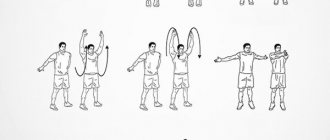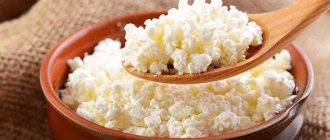Home » Miscellaneous » Caffeine sodium benzoate for weight loss – reviews
The term “coffee addict” applies to those people who cannot feel normal if they do not drink coffee for a long time. And it quite accurately determines the state of a person who is accustomed to receiving a dose of caffeine at certain intervals, because this substance stimulates activity and thought processes. But the same effect can be obtained if you use a special product - caffeine sodium benzoate. It is also believed to be capable of causing weight loss to a certain extent if taken correctly.
What is caffeine?
Caffeine is an alkaloid, a nitrogen-containing organic compound found in many plants, such as the coffee tree, tea bush, yerba mate, guarana and others.
For humans, this substance is a psychostimulant, affecting mainly the activity of the central nervous and cardiovascular systems. The main source of caffeine for the average person is tea, coffee, and many carbonated drinks, such as Coca-Cola. The principle of action of caffeine is to block phosphodiesterase, an enzyme that destroys cyclic adenosine monophosphate (cAPM, a derivative of ATP, the main source of energy for biochemical processes). As a result, cAMP accumulates in the body, which enhances and distributes the action of many hormones, but mainly adrenaline. In fact, caffeine does not increase the level of adrenaline, but enhances its effect, after which glycogenolysis and glycogenogenesis increase, blood vessels dilate, blood supply to the brain, heart and other organs improves, and the central nervous system is stimulated.
In medicine, caffeine is used in medications for headaches and migraines, as well as cold remedies. In addition, it is found in many foods. In addition to coffee and tea, from the plants from which it is synthesized, caffeine can be obtained from carbonated drinks, energy drinks and chocolate.
Other methods of weight loss and cellulite elimination
You can use other products containing this substance for weight loss. They can be prepared at home, because there is nothing complicated about it:
- Caffeine and Papaverine. According to numerous reviews, this medicine removes fluid and toxins from the body. It is often used for masks and wraps. To prepare it, you need to mix caffeine powder and Papaverine solution in equal proportions. The mixture is applied to the required places, wrapped in polyethylene and left for forty minutes. You can also prepare the following solution: mix caffeine powder and Papaverine solution in equal proportions, add a small amount of honey, make a wrap, and walk like this for several hours.
- Caffeine and Capsicam. This product is used as a wrap to eliminate cellulite. To prepare it, “Capsicam” ointment is mixed with cream (you can use any cream), four ampoules of caffeine are added, and mixed well. The product is lubricated with problem areas and wrapped in polyethylene. The wrap should be kept for about three hours. Then you need to thoroughly rinse off the product. Until this is done, it is forbidden to eat food.
- Caffeine and ginger. A tonic drink is prepared from these components, which helps reduce body weight by burning fat. Grind a small part of the ginger, pour it into a coffee pot, brew the drink and drink.
- Caffeine and guarana. This plant contains much more caffeine than all others. Therefore, it is best to drink a drink from it in the first half of the day. To prepare it, you need to pour boiling water over two tablespoons of the leaves of the plant, leave for about fifteen minutes, and then you can drink the drink.
Be sure to read: A good assistant in losing excess weight Slim Samyun Wan
Caffeine in sports and bodybuilding
For athletes, caffeine is produced in tablets - these are special dietary supplements with a high concentration of caffeine sodium benzoate. This version of caffeine tablets for athletes has better absorption and reduces the likelihood of side effects associated with disruption of the gastrointestinal tract. Athletes benefit from taking caffeine before exercise:
- increases mental and physical performance;
- speeds up the reaction;
- temporarily relieves drowsiness and fatigue;
- improves blood circulation;
- deepens breathing;
- increases glycogenolysis (the process of converting glycogen into glucose);
- increases lipolysis (the process of breaking down fats into fatty acids, leading to the release of energy).
Most of these effects are beneficial for the average person, but caffeine's effects are temporary, making it ideal as a pre-workout supplement. Although no one prohibits taking a dietary supplement before other events related to physical or mental activity, for example, before speaking in front of an audience. An athlete, taking caffeine for training, temporarily but significantly increases his endurance, thereby increasing the effectiveness of training. And due to the increase in lipolysis, many athletes use caffeine for weight loss. Of course, improvement in fat burning occurs only with active training; coffee itself will not get rid of excess weight: it only forces the body to use fat deposits as an energy source for training.
Caffeine-sodium benzoate for weight loss
This drug is recommended by many people who have had problems with excess weight. It comes in several forms:
- Pills;
- Solution for injection;
- Powder.
Be sure to read: Effective French Vichy cream for stretch marks
Powder and solution are used for wrapping. Women say that it helps remove cellulite and smooth the skin.
The drug has the following composition:
One tablet contains one hundred milligrams of caffeine. One ampoule contains one or two milliliters of 10% or 20% caffeine solution. It is administered subcutaneously.
After using the product for two hours, a person feels a surge of energy, blood pressure increases, and pulse quickens. This condition contributes to the expenditure of large amounts of energy, breaking down adipose tissue. At this time, it is recommended to engage in strength training, this will contribute to rapid weight loss.
Also, after taking the drug, the blood vessels dilate, blood flows to the skin, which makes it possible to cleanse it of toxins, eliminate swelling, and deliver oxygen to the tissues, which is involved in the process of burning fat deposits.
How to take caffeine for weight loss and workouts?
The main rule: you need to take caffeine sodium benzoate before training. In order for the dietary supplement to be absorbed and begin to have an effect, it is better to take the tablets 30–60 minutes before the start of the training. There is no point in taking caffeine after a workout, since it does not directly affect muscle growth. The method of administration is extremely simple: 1-4 tablets of 200 mg each, washed down with any liquid. All tablets can be taken at one time, or they can be divided into several doses with a break of several minutes - there will be no difference for our body. One 200 mg tablet can be equivalent to 1-2 cups of strong coffee.
Dosage of caffeine in sports: for an adult, for a good effect, 3 to 6 mg of the substance per 1 kg of body weight is enough. However, the body gets used to coffee gradually, so you need to start the course with small doses. It is especially important to follow this prescription for athletes who rarely drank coffee before taking the supplement. You can start with small doses of 100–200 mg, gradually increasing the dosage of caffeine before training. In the same way - gradually - it is worth completing the course of treatment in order to avoid negative consequences. There cannot be a specific answer on how much caffeine to take at a time, since it depends on the individual characteristics of the body. A truly dangerous dose of caffeine for an adult is considered to be 10 grams (10,000 mg) per day: if its concentration in the blood reaches 15 mg per 1 liter, it can cause serious harm. For people with cardiovascular diseases, of course, a much smaller amount is enough to end up in the hospital, but when taking 2-3 caffeine tablets before training, there is no need to fear for your health.
Neither scientists nor manufacturers set strict caffeine intake periods: many people get it in huge doses from coffee throughout their lives. But taking caffeine non-stop is highly discouraged. After 2–3 months of regular use, dependence may develop: the previous dosages will no longer bring any positive effect, and the athlete will have to continue to increase them until symptoms of an overdose appear. If you take a break from caffeine for about 1–2 weeks every 2 months (after gradually reducing the daily dose), your performance will drop quite a bit, but this will keep your body healthy.
Caffeine for weight loss. Effects for a bodybuilder
You and I, as people involved in sports, are interested in three main questions:
- How does caffeine help you lose weight?
- Is there any point in taking caffeine?
- And if it makes sense, then how much and how to take?
I think I'm right)
So, let's talk about the main effects of caffeine directly for a bodybuilder.
Most of the studies that have been conducted with caffeine have been aimed specifically at those sports that require a significant increase in endurance.
From this point of view, caffeine really helps to achieve more serious results.
First theory: fat-burning effect of caffeine
The very first and MOST BELIEVABLE theory is that caffeine promotes the production of ADRENALINE (the fear hormone), which accelerates the release of free fatty acids into the blood and is a stimulant of the central nervous system.
In an article about how to overcome fear, we looked at a very interesting ability of adrenaline, which was used by our ancestors tens of thousands of years ago.
I'm talking about the ability of adrenaline at the reflex level to force the human body (and not only) to mobilize all its energy reserves for instant decision making.
This is a reaction called "Fight or Flight!" This is what adrenaline can trigger.
Caffeine promotes the production of this same adrenaline.
Due to this, at the very beginning of our training, the muscles begin to “eat” or “burn” available fatty acids, while maintaining reserves of muscle glycogen (fast fuel, stored carbohydrates in the muscles and liver).
Scientific research has confirmed this theory.
Do you understand?
Those. THE MAIN FUEL for muscles (glycogen) is not yet consumed, but FATs are already burning. I think it's perfect. Due to this, endurance increases.
But, in fact, it is obvious that this effect is very beneficial for any athlete training with iron, and not just for a person seeking to increase his endurance.
You feel an energy boost at the very beginning of training, your performance is at a high level, and your glycogen “tanks” are still full, despite the fact that fats have already begun to burn.
- Those. we are not sluggish (the central nervous system is stimulated by caffeine) - this is the case.
- We burn fat reserves - that's two.
- And we have unspent glycogen for longer workouts.
How cool is that? Still would.
Very often they talk about the ability of coffee to suppress appetite. Research doesn't support this.
Fat burning is associated precisely with the processes of starting the production of adrenaline and starting the burning of fatty acids in the blood as a priority.
Second theory: caffeine directly affects muscles
This theory is that caffeine can directly affect skeletal muscles (the ones we pump), changing key systems that regulate the breakdown of carbohydrates inside cells.
That is, roughly speaking, scientists wanted to draw the conclusion that caffeine directly causes muscles to reduce glycogen consumption.
Many studies have been conducted, none of which have been completed, so no clear results have been obtained.
Third Theory: Caffeine Makes You Work Harder
The third, MOST COMMON and MOST PROVEN by scientific experiments theory of all.
Caffeine can make a person feel like they have done less work than they actually have.
This is explained by the fact that caffeine, due to its effect on the nervous system, can provide a psychological effect to athletes that they are not working as hard. Also, caffeine can enhance the strength of muscle contractions.
Oddly enough, caffeine is VERY SIMILAR to adenosine! Why strange?
Yes, because adenosine is an inhibitory type nucleoside neurotransmitter that plays a role in stimulating sleep and suppressing alertness, because its concentration increases during prolonged wakefulness of the body and decreases during subsequent sleep.
Those. Caffeine is a stimulant, but similar to adenosine, which promotes sleepiness. How so?
The fact is that caffeine does NOT have the same effect as adenosine, although it can interact with adenosine receptors on brain cells.
Instead, caffeine STIMULATES the production of adrenaline, a hormone that makes you feel better during exercise.
Other effects of caffeine
Here are other, no less interesting, effects of caffeine:
- Prevents Alzheimer's disease and dementia when consumed 3 to 5 cups per day (by preventing the formation of beta-amyloid plaques in the brain).
- Coffee lovers live longer (coffee helps slow down the process of brain destruction).
- Reduces the risk of developing breast cancer in women (Nutrigenet and Nutrigenomics Study 2015).
- Helps avoid systemic inflammation, heart and vascular diseases.
- Helps increase testosterone levels after training (by an average of 21%).
Negative effects of caffeine
Since caffeine is a central nervous system stimulant, one should not forget about the negative effects of caffeine on the body, especially if used improperly or in excess.
- May aggravate the ulcer.
- Worsening of the course of cardiovascular diseases.
- Increased blood pressure.
- Anemia (hypertension).
With these contraindications, it is better to stop drinking caffeine and try to improve athletic performance through training programs and nutrition.
Contraindications and symptoms of overdose
Caffeine is a natural and, more importantly, very common substance. People who have contraindications to it probably already know about this. However, you should be a little more careful with dietary supplements, since it is much easier to overdose on caffeine with tablets than with regular coffee. Here is a list of who should not take caffeine pills for athletes:
- teenagers under 18 years of age;
- To old people;
- pregnant women;
- women during lactation;
- patients with diabetes;
- people with serious cardiovascular diseases;
- for sleep disorders;
- with epilepsy or a tendency to seizures.
People with contraindications are not prohibited from taking caffeine benzoate tablets, but before use they must consult a specialist. If taking caffeine for training leads to any negative consequences, then you need to stop the course and immediately consult a doctor. Symptoms of caffeine overdose may include:
- anxiety and anxiety;
- epileptic seizures;
- headache and ringing in the ears;
- insomnia;
- high blood pressure and rapid heart rate.
Stopping treatment abruptly may lead to other negative consequences. If you give up caffeine in 1 day, rather than gradually reducing the dosage, you may experience increased fatigue, lethargy and drowsiness. And low-quality dietary supplements can lead to digestive disorders: abdominal pain, nausea, vomiting, diarrhea, and so on. In general, improper use of caffeine-sodium benzoate in sports can easily lead to various negative consequences, so you must strictly adhere to the instructions.
Delivery throughout Russia You can order sports nutrition in the KULTURIST#1 online store anywhere in Russia. More detailed information about delivery can be found on the “Delivery and Payment” page. Retail store addresses
#1 St. Petersburg Strike Avenue 96k3, st. m. Avtovo
#2 Novorossiysk st. Yuzhnaya, 21
#3 Sochi st. 20th Mountain Rifle Division, 18a









